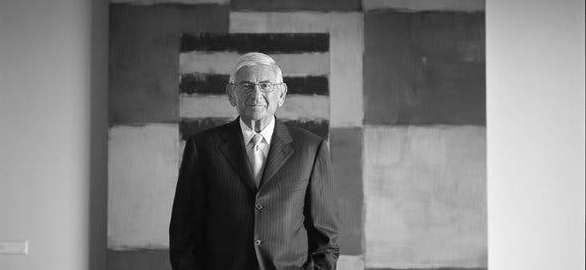New York Times newspaper reports Eli Broad, a businessman and philanthropist whose vast fortune, extensive art collection and zeal for civic improvement helped reshape the cultural landscape of Los Angeles, died last Friday at Cedars-Sinai Medical Center in Los Angeles at the age of 87.
Eli Broad was born in the Bronx on June 6, 1933, the only child of Jewish immigrants from Lithuania. When he was 7 the family moved to Detroit, where his father opened a dime store, the New York Times reported.
After graduating from Detroit Central High, he entered Michigan State College where he earned a bachelor’s degree in accounting in three years. Soon after he married Edythe Lawson, known as Edye, who survives him, as do their two sons, Jeffrey and Gary.
After working for a small accounting firm, he formed a partnership with Donald Kaufman to build no-frills tract houses in the Detroit suburbs. The Kaufman & Broad Building Company soon expanded to Phoenix and Los Angeles, where Mr. Broad moved in 1964.
In 1971, the company diversified, spending $52 million for a sleepy Baltimore insurance company, Sun Life, which became a powerhouse when Mr. Broad focused on selling annuities and financial planning services to baby boomers. Renamed Sun America in 1993, it was sold to the American International Group, the insurance giant, in 1998 for $18 billion, netting Mr. Broad more than $3 billion.
Mr. Broad began collecting art in the 1960s after his wife began making the rounds of the galleries on La Cienega Boulevard and brought home a Braque print and a Toulouse-Lautrec poster. He spent $85,000 on his first purchase, a drawing by Van Gogh. Works by Matisse, Modigliani, Miró and Henry Moore followed.
Curiosity quickly developed into an acquisitive passion, focused on living artists, whose work he collected in depth.
“I’m not an art historian, but I read a lot, went to museums, went to auctions, spoke to dealers,” Mr. Broad told the New York Times in 2001. “And I became interested in the art of our time. Why? It reflects what’s happening in our society. And frankly I enjoyed meeting the artists, visiting with them, talking to them about how they see the world, which is far different than people who spend all their time in business.”
Full necrology here.


